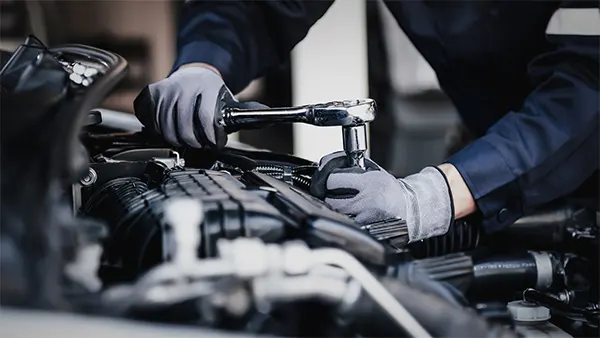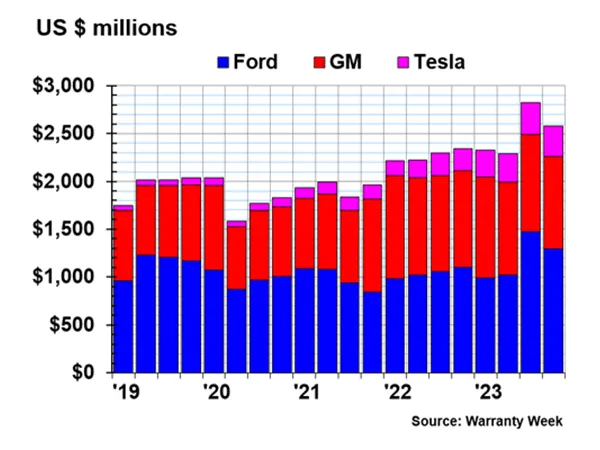Understanding Your Car’s Warranty Coverage

Buying a car can be a pretty huge commitment.
There are a lot of things to keep in mind when something in a car breaks, needs fixing, or just needs replacement.
In such cases, you need to look into what is actually covered by your car’s warranty and what you need to pay out of pocket.
You know, these warranties oftentimes come with a ton of legal jargon, which can be hard for any normal person to understand.
But, if you can decipher these things, it can help you save a lot of time, money, and unnecessary stress.
So, what’s actually covered under your car warranty?
Well, a car’s warranty can differ based on the manufacturer, and it’s up to you to know what you’re entitled to.
No matter if you’ve just bought the vehicle or are thinking of getting a used one, understanding the warranties and their coverage can significantly impact your ownership experience.
And if you’re looking for a used car, then Morton auto auction has a bunch of options you can choose from.
Plus, they can also help you with your queries about warranties based on what you buy. Also, learn about the Car Apps For Better Driving with this guide.
DID YOU KNOW?
Car warranties can cover parts such as the engine, gearbox, suspension, brakes, and steering. They usually cover components that directly affect safety, reliability, and roadworthiness.
The warranty is usually capped at 3 years and 36,000 miles, though some luxury brands may extend it further.
Types of Car Warranties
There are several types of warranties you should be familiar with:
- Factory Warranty: This is the warranty you get when you buy a brand-new car from a dealership. It covers most of the parts in your car against warranty defects for a specified time or a number of miles, whichever comes first.
- Powertrain Warranty: This warranty covers the car’s engine, transmission, and other key components of the drivetrain. Typically, this warranty lasts longer than the factory warranty, often up to five years or 60,000 miles.
- Bumper-to-Bumper Warranty: Despite its name, this warranty doesn’t cover every part of your car. However, it is the most comprehensive, including most parts and systems, with specific exceptions listed in your warranty agreement.
- Extended Warranty: Also known as a service contract, this warranty can be purchased to extend coverage once the original warranty expires. While it can provide peace of mind, it’s important to weigh the cost against the likelihood of needing repairs.
- Rust and Corrosion Warranty: This coverage protects against rust-through issues, such as a hole through the car’s body, and typically lasts longer than the basic factory warranty.
- Emissions Warranty: Federal law requires all vehicles to have an emissions control system warranty, covering necessary repairs to meet emission standards.
Understanding Your Coverage
If you want to fully take advantage of your car’s warranty, you need to understand what’s covered and what’s actually not.
Normally, most warranties will not cover routine maintenance, oil changes, brake pads, or tire and battery replacements.
Damage done in accidents, improper maintenance, and environmental damages are also not covered.
You need to read up on your warranty booklet to know the specifics of your coverage.
But if all this confuses you, you can check out online car warranty apps like Auto Guard, Wise Drive, or FitC Car Warranty to learn more about car warranties.
Aside from all this, keep in mind that keeping your car well-maintained will also help you keep your warranties valid.
You know, some manufacturers may deny warranty coverage if they determine the vehicle has been neglected or misused.
Understanding the ins and outs of your warranty might also help you avoid unexpected charges.
And if you intend to sell the vehicle, make sure you understand the warranty transfer terms.
Not all warranties are transferable, and if they are, there may be additional criteria or expenses associated.
Besides, certain warranties may make you have to use specific dealerships or parts for repairs, influencing your choices and budget.
Navigating Warranty Repairs
Well, if you’re facing some issues with your car that should be covered in your warranty, the first thing you need to do is get in touch with your dealership.
They will advise if the issue is covered and guide you through the repair process.
Plus, with everything being digital these days, you can do all these steps online.
Remember, warranty repairs should be free of charge, but it’s important to confirm this before proceeding.
For warranty work, always use authorized dealerships or service centers.
If you get your car repaired by a third party, then you can lose the warranty coverage entirely.
And make sure that any replaced parts are manufacturer-approved to avoid complications with your warranty coverage.
Also, keep a record of everything for when your repairs are not up to par or things go south.
This record should include dates, the names of the service advisers or technicians, and a detailed explanation of the problem and the solution offered.
Besides, before signing off on completed maintenance, inspect the car to confirm that all issues have been fixed to your satisfaction.
Extended Warranties and Third-Party Providers
You know, your manufacturer’s warranty won’t last forever.
For such cases, you need to buy an extended warranty that can still cover you when your original warranty ends.
But before you run off to get an extended warranty, you need to take note of your car and your financial situation too.
Extended warranties can be pretty expensive, and if your car is reliable, you may not need the extra coverage. I
So if you decide to go for an extended warranty, research your options.
Third-party warranties can vary in terms of coverage, cost, and reputation.
Read up on the reviews, understand the terms, and compare different plans to ensure you’re getting the best deal for your needs.
So, when you’re looking for third-party coverage, look at all the hidden fees and check all the paperwork thoroughly.
Also, look to see if pre approval is needed to get repairs on your car started.
You can easily find a ton of extended warranty services online, but keep in mind to do your own research and check online reviews before you settle on a service.
Tips for Maximizing Your Warranty
- Read Your Warranty: This may seem obvious but you need to know the specifics of your warranty, what is covered and what isn’t, and for how long.
- Maintain Your Vehicle: Follow the manufacturer’s recommended maintenance schedule. Keep all records and receipts, as you may need them to prove that the vehicle was properly maintained in case of a warranty claim.
- Know the Process: Understand how to file a warranty claim and where to go for repairs. This information can be found in your warranty booklet.
- Ask Questions: If you’re unsure if an issue is covered, ask. It’s better to inquire before having work done than to assume coverage and be faced with a bill later.
- Be Proactive: If you suspect a problem, address it sooner rather than later. Waiting can lead to further damage, which might not be covered.
U.S.-based Auto Manufacturers Claims Paid per Quarter (in millions of U.S. dollars, 2019-2023)

In 2023 as a whole, Ford paid a total of $4.78 billion in warranty claims, up 15% from the year prior. GM paid $4.01 billion in claims during 2023, down -2% from 2022. Tesla paid $1.23 billion in claims, up 53% from the year prior. 2023 was the first year Tesla exceeded the billion-dollar threshold for total annual warranty claim payments.
Conclusion
As a car owner, you need to understand the ins and outs of your car’s warranty coverage.
By familiarizing yourself with the types of warranties, what your warranty covers, and how to navigate repairs and claims, you can make better decisions about your vehicle’s care and maintenance.
This helps protect your investment and ensures a smoother, more enjoyable car ownership experience.
